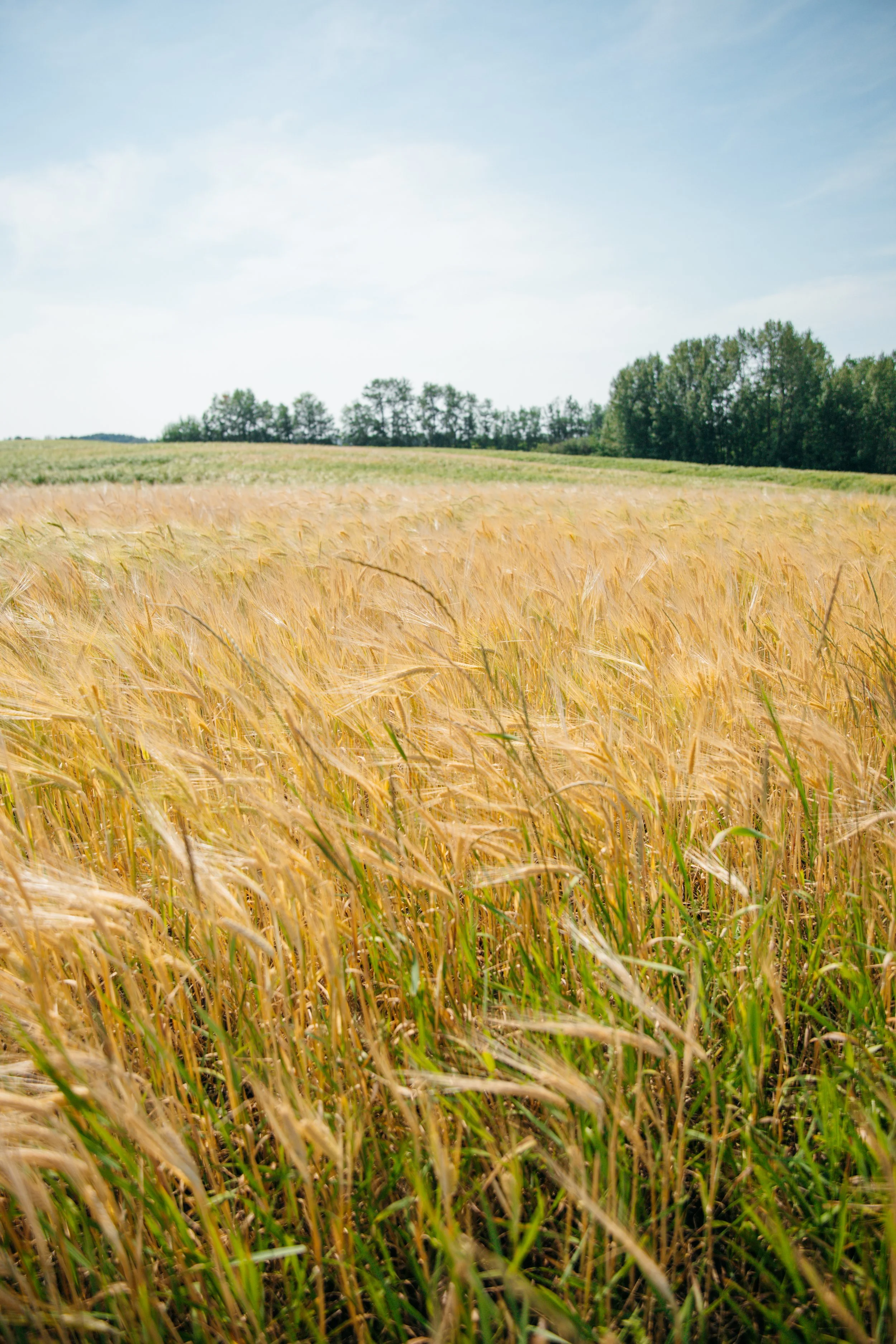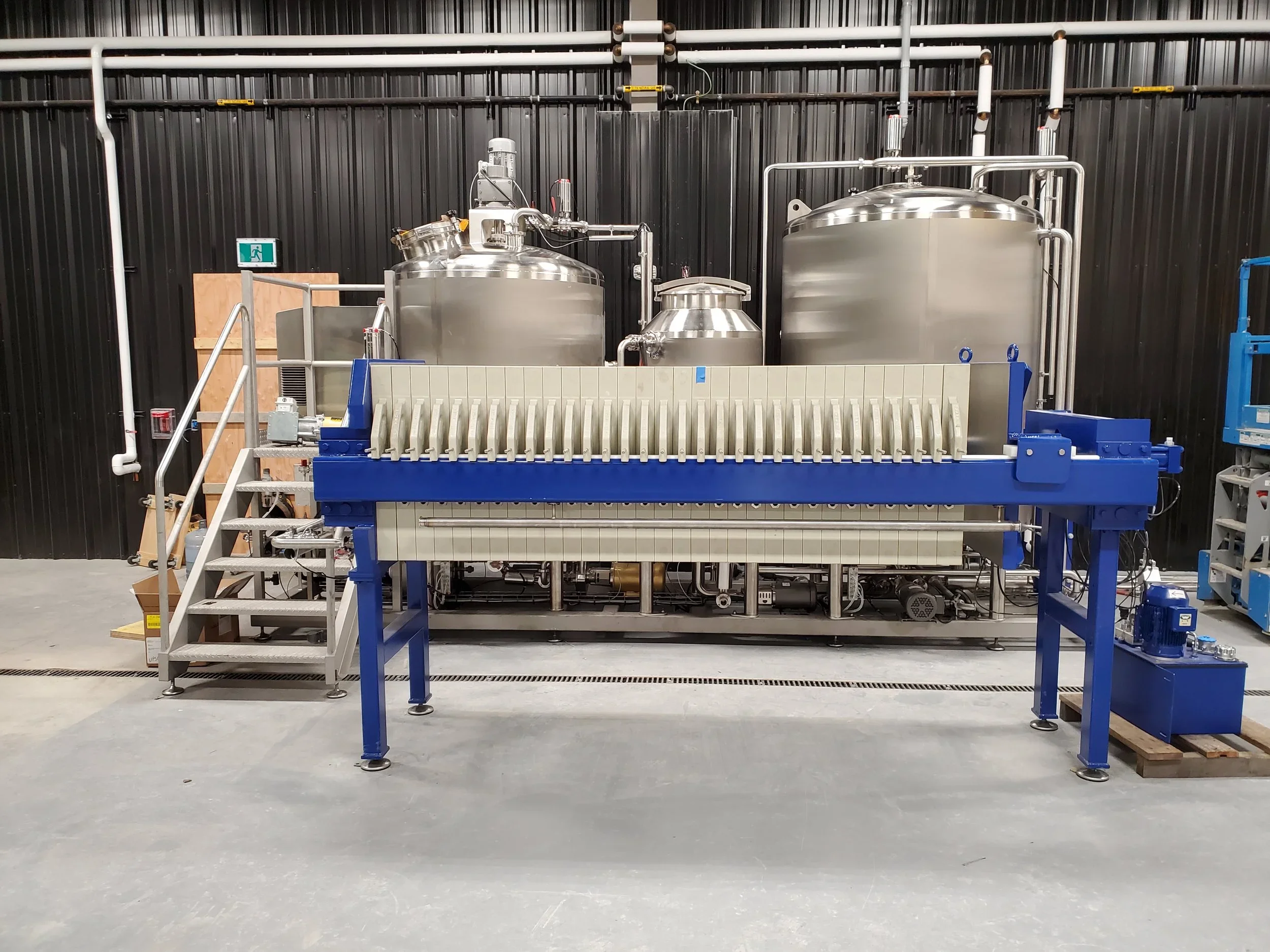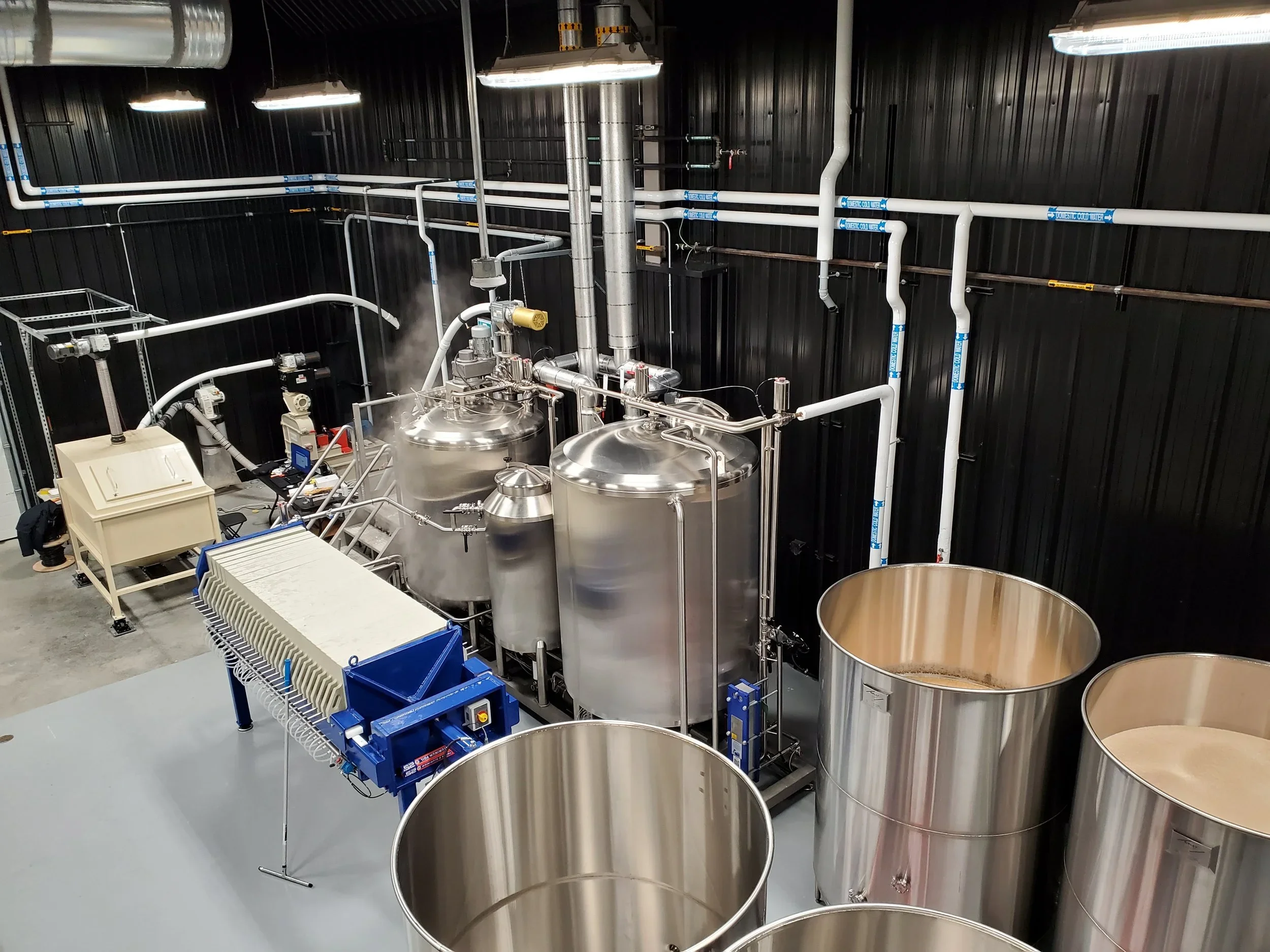Our Grains
Nestled in the heart of picturesque Parkland County, Alberta our farm is located in the heart of some of the best barley growing conditions in the world. In fact, the Province of Alberta grows more barley than any country in the Western Hemisphere and almost three times more than Scotland.
Anohka was started with the intention of showing that we have a tremendous opportunity to make some of the best whisky in the world in the same place where we have some of the best growing conditions in the world.
On our 110 acre farm we grow our own barley without the use of glyphosate or pesticides as a part of a 3 year rotation, along with Wheat and Canola. We have a portion of our crop malted by a local farm based maltster, Hammer Malt, and make a variety of different styles of whisky from our barley, including single pot still, single malt and grain whiskies.
The grains with which we work also include local malted barley, peated malt from Simpsons, rye, malted rye, our own wheat. We hope to one day experiment with local corn and oats as we use a mash filter to mash our grains, meaning that we can make whisky from any grain or any mash bill.
We have discovered a large peat bog on our farm and are working on developing a limited release of a peated whisky from our own barley and our own peat!
Mashing
This is a critical step in creating Anohka’s distinct flavour profile. We are the first and only distillery in Canada to use a Meura Mash Filter.
Why?
We did not take this decision lightly but came to it almost naturally, as it was our only choice to achieve our goals of creating flavour intensity, while also doing it in the most sustainable way possible.
The two goals seem antithetical but are in fact linked. Having a Meura Mash Filter allows us to extract more flavour and more sugar from our grains, while reducing our water and energy consumption by up to 30% versus typical mash and lauter systems.
How?
Unlike traditional malt distilleries we create our grist using a hammer mill which pulverizes the grain into much smaller particles than a traditional roller mill. This smaller particle size results in faster conversion of starch to sugar and enhanced extraction of flavour from the grain.
After it is milled, the grain flour is augered into the our mash vessel where it is mixed with warm water to activate the enzymes in our malt to break down protein and starches in the grain to create the nutrients we need to feed our specifically chosen yeast strain.
We then pump our mash into the mash filter where, instead of slowly gravity draining the liquid off the grain we can separate the grain from the liquid using a specially designed filter membrane and an airbladder to squeeze as much liquid as possible out of the grain.
There are other groundbreaking distilleries such as InchDairnie who also employ a Meura Mash Filter, but we set our selves apart by pushing our Mash Filter to it’s absolute limit and beyond what should be theoretically possible. We use far less water during both mashing and sparging but still achieve nearly 100% extraction efficiency from our grain.
By using such little water we are able to achieve an impossibly high initial gravity of 1.080, which results in a concentration of flavour not typically seen in the industry. This high sugar and flavour concentration creates the perfect starting point for our fermentation and is critical to Anohka’s distillery character.
Fermentation
High gravity brewing creates a number of challenges and opportunities. The high sugar concentration creates a hostile environment for many yeast strains, however after careful research and experimentation we identified a strain of yeast that not only thrives in this harsh environment but creates an explosion of fruit esters when exposed to high gravity and high temperatures: Pinnacle MG+.
The further benefit of having a yeast which thrives in high temperatures is that we are able to complete all of our fermentation without the need for any cooling, again significantly reducing our energy and water usage.
Our fermenters are open to the environment, allowing in the native and wild yeasts/microbes that exist in our local environment. This coupled with long, 120 hour, fermentations adds to the complexity and unique character of our spirits.
Due to our high initial gravity we are able to produce a fermented wash at nearly 11% alc/vol, whereas most single malt distilleries hit only 6% to 8% acl/vol, in addition to more intense flavours, it also means we are able to significantly reduce the energy we use during distillation to separate alcohol from water!
Learn more here.




